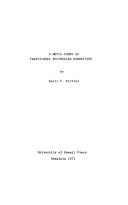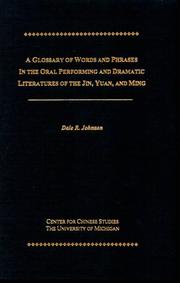| Listing 1 - 10 of 57 | << page >> |
Sort by
|
Book
Year: 2018 Publisher: Helsinki : Finnish Literature Society (SKS),
Abstract | Keywords | Export | Availability | Bookmark
 Loading...
Loading...Choose an application
- Reference Manager
- EndNote
- RefWorks (Direct export to RefWorks)
"Traditionally, oral traditions were considered to diffuse only orally, outside the influence of literature and other printed media. Eventually, more attention was given to interaction between literacy and orality, but it is only recently that oral tradition has come to be seen as a modern construct both conceptually and in terms of accessibility. Oral traditions cannot be studied independently from the culture of writing and reading. Lately, a new interdisciplinary interest has risen to study interconnections between oral tradition and book culture. In addition to the use and dissemination of printed books, newspapers etc., book culture denotes manuscript media and the circulation of written documents of oral tradition in and through the archive, into published collections. Book culture also intertwines the process of framing and defining oral genres with literary interests and ideologies. In addition to writing and reading, the study of oral traditions must also take into consideration the culture of publishing. The present volume highlights varied and selected aspects of the expanding field of research into oral tradition and book culture. The questions discussed include the following: How have printing and book publishing set terms for oral tradition scholarship? How have the practices of reading affected the circulation of oral traditions? Which books and publishing projects have played a key role in this and how? How have the written representations of oral traditions, as well as the roles of editors and publishers, introduced authorship to materials customarily regarded as anonymous and collective? The editors represent some of the key institutions in the study of oral traditions in Finland: the University of Helsinki, the Finnish Literature Society, and the University of Eastern Finland. The authors are folklorists, anthropologists, historians and literary historians, and scholars in information studies from Finland, Sweden, Norway, Ireland, and the United States."
Periodical
Year: 2012 Publisher: Tarragona : Publicacions de la Universitat Rovira i Virgili,
Abstract | Keywords | Export | Availability | Bookmark
 Loading...
Loading...Choose an application
- Reference Manager
- EndNote
- RefWorks (Direct export to RefWorks)
Book
Year: 1997 Publisher: Oeiras : Celta Editora,
Abstract | Keywords | Export | Availability | Bookmark
 Loading...
Loading...Choose an application
- Reference Manager
- EndNote
- RefWorks (Direct export to RefWorks)
Book
Year: 2002 Publisher: Wien : Böhlau,
Abstract | Keywords | Export | Availability | Bookmark
 Loading...
Loading...Choose an application
- Reference Manager
- EndNote
- RefWorks (Direct export to RefWorks)
Bei der bislang unveröffentlichten Sammlung von südslavischen Erzählungen in deutscher Übersetzung aus dem Nachlass des jüdisch-kroatischen Volkskundlers, Literaten und Sexualforschers Friedrich Salomo Krauss (1859-1938) handelt es sich z. T. um authentisches Material, das Krauss während seiner Forschungsreise 1884-85 in Bosnien, der Herzegowina und Dalmatien aufgenommen hat, z. T. um Übersetzungen aus südslavischen Folklore-Zeitschriften und Erzählsammlungen vor und um die Jahrhundertwende; die literarisch getönten Übersetzungen und die teilweise ausführlichen Kommentare von Krauss sind ein Kultur- und Zeitdokument der Wiener Geistesgeschichte in den ersten Jahrzehnten des 20. Jahrhunderts. Darüber hinaus dokumentiert diese Sammlung die unterschiedlichen ideologischen Voraussetzungen für die Anfangsstadien der Entwicklung der österreichischen Volkskunde, die von Anfang an international ausgerichtet war, in besonderer Beziehung zu den Völkern Südosteuropas gestanden hat und Querverbindungen zu anderen Wissenschaftszweigen wie Ethnologie und Anthropologie, Psychologie und Rechtswissenschaft pflegte.
Book
Year: 2021 Publisher: Leeds, [UK] : Arc Humanities Press,
Abstract | Keywords | Export | Availability | Bookmark
 Loading...
Loading...Choose an application
- Reference Manager
- EndNote
- RefWorks (Direct export to RefWorks)
"Nearly all recent examinations of Icelandic (and Scandinavian) folklore from the nineteenth century and earlier have concerned themselves with the origins and production of folktales rather than with the cultural implications of their content. This volume extends those discussions by offering an interdisciplinary methodology that weaves together the literature, religious and political history, and other cultural phenomena that have impacted folk narratives as evidence of the emergent cultural memory of a society undergoing the religious developments of Christianization and Reformation. Iceland's uncommon proclivity towards storytelling, its robust tradition of medieval manuscripts, and the "re-oralization" of those narratives after the medieval period, create a body of folktales and legends that have encoded a hidden account of how orthodox and heterodox beliefs (sometimes pagan in origin) intermingled as Christianity, and later Reformation, spread through the North. This volume unlocks that secret story by placing Icelandic folktales in a context of religious doctrine, social history, and Old Norse sagas and poetry. The analysis herein reveals a cultural memory of belief."--

ISBN: 0824884078 0870224166 Year: 1971 Publisher: University of Hawai'i Press
Abstract | Keywords | Export | Availability | Bookmark
 Loading...
Loading...Choose an application
- Reference Manager
- EndNote
- RefWorks (Direct export to RefWorks)
Folk literature, Polynesian --- Themes, motives. --- Polynesian folk literature --- Polynesian literature
Book
Year: 2014 Publisher: Publicacions Universitat Rovira i Virgili
Abstract | Keywords | Export | Availability | Bookmark
 Loading...
Loading...Choose an application
- Reference Manager
- EndNote
- RefWorks (Direct export to RefWorks)
This volume contains a selection of three translations of articles by Josep M. Pujol (Barcelona, 1947–2012), one in each of the three areas that he defined to characterise his work in the field of folklore: the theory of interactive artistic communication; the history of folklore studies and folk literature; and folk narrative. The three articles give a taste of the important contributions he made to the study of folklore, and which have been studied and contextualised by Carme Oriol in the introduction that precedes the three texts. This edition also includes the complete folkloric bibliography of Josep M. Pujol in chronological order, with all the references.
folk narrative --- folklore --- folk literature
Periodical
Year: 2011 Publisher: Jaén, España : Universidad de Jaén,
Abstract | Keywords | Export | Availability | Bookmark
 Loading...
Loading...Choose an application
- Reference Manager
- EndNote
- RefWorks (Direct export to RefWorks)

ISBN: 089264138X 0472901761 9780472127801 9780472901760 Year: 2000 Publisher: Ann Arbor : Center for Chinese Studies, University of Michigan,
Abstract | Keywords | Export | Availability | Bookmark
 Loading...
Loading...Choose an application
- Reference Manager
- EndNote
- RefWorks (Direct export to RefWorks)
Chinese language --- Folk literature, Chinese --- Chinese drama --- English. --- Chinese. --- Chinese literature --- Chinese folk literature
Book
ISBN: 9781906924720 1906924716 2821817177 1906924724 9781906924737 9781906924744 9781906924713 9781906924706 1906924708 1906924732 1906924740 Year: 2012 Volume: 1 Publisher: Cambridge Open Book Publishers
Abstract | Keywords | Export | Availability | Bookmark
 Loading...
Loading...Choose an application
- Reference Manager
- EndNote
- RefWorks (Direct export to RefWorks)
"Ruth Finnegan's Oral Literature in Africa was first published in 1970, and since then has been widely praised as one of the most important books in its field. Based on years of fieldwork, the study traces the history of storytelling across the continent of Africa. This revised edition makes Finnegan's ground-breaking research available to the next generation of scholars. It includes a new introduction, additional images and an updated bibliography, as well as its original chapters on poetry, prose, "drum language" and drama, and an overview of the social, linguistic and historical background of oral literature in Africa. Oral Literature in Africa has been accessed by hundreds of readers in over 60 different countries, including Ethiopia, Kenya, Rwanda and numerous other African countries. The digital editions of this book are free to download thanks to the generous support of interested readers and organisations, who made donations using the crowd-funding website Unglue.it. Oral Literature in Africa is part of our World Oral Literature Series in conjunction with the World Oral Literature Project. This volume is complemented by original recordings of stories and songs from the Limba country (Sierra Leone), collected by Finnegan during her fieldwork in the late 1960's, which are hosted by the World Oral Literature Project and are freely accessible here [i.e., publisher's website]"--Publisher's website.
Folk literature -- Africa. --- Folk literature, African -- History and criticism. --- Oral tradition -- Africa. --- African Languages & Literatures --- Folk literature, African --- Oral literature --- Folk literature --- Oral tradition --- History and criticism. --- Folklore --- Literature --- Folk literature.
| Listing 1 - 10 of 57 | << page >> |
Sort by
|

 Search
Search Feedback
Feedback About UniCat
About UniCat  Help
Help News
News